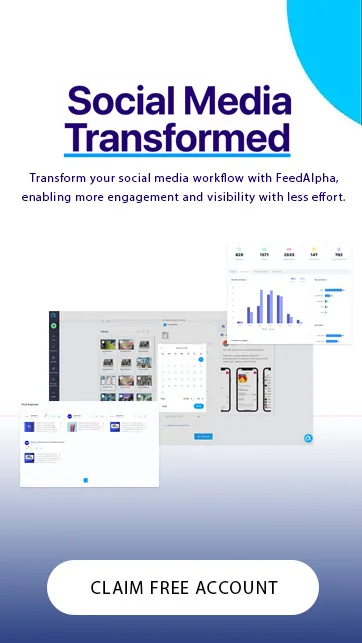Unfortunately, a Social Media crisis of some sort is somewhat inevitable at one point or another when a business is actively utilising Social platforms. Social Media is incredibly quick-paced and things can turn from good to bad fast – even with just 280 characters.
What Is A Social Media Crisis?
A Social Media Crisis is something that could have a harmful effect on a business, such as its brand reputation. Although it has Social Media in the title, a crisis could occur offline and be brought online by those involved. As we know, customers turn to Social Media platforms (especially Twitter) to share negative experiences more often than positive ones.
Of course, the definition of a crisis is somewhat relative. For example, a big brand would survive a few negative comments or reviews much better than a small business would. Therefore, it’s worth thinking about what your specific interpretation of a crisis would be.
Reducing The Threat Of A Social Media Crisis
Fortunately, there are some measures that a business could put in place to reduce the likelihood of a crisis occurring.

1. Restrict User Access
Wrongly or rightly, businesses tend to leave Social Media to the more junior members of the team which opens the door to all kinds of potential issues. For example, the tone and quality of the content being shared need to be accurate and on-brand. Where possible, only assign editor access to pages over admin to limit the user.
2. Frequently Update Passwords
The more people who have access to a business page or the logins to Twitter, for example, the higher the risk. Where possible, only share credentials with those you really trust and update your passwords frequently.
3. Proof First, Post Second
Yes, Social Media moves quick, but it’s not worth the risk of posting without a proof or second eye. Proofing shouldn’t just be limited to the copy, the creative is just as important.
Furthermore, any articles or hashtags used should be thoroughly checked beforehand. Only post content from sources you trust and are factually correct and be sure to understand the origin of the hashtag before including it in your post.
4. Identify Risks In Advance
Somewhat easier said than done, but if you can take some time to plot out a ‘Risk Matrix’ of any potential risks in advance then firstly you can put processes in place to reduce the threat but also you’re more likely to know how best to respond if/when it occurs.
5. Social Listening
Social Listening should already be a part of your Social Media management and this may well nip any potential issues in the bud before they escalate to crisis level.
6. Response Templates
A consistent tone of voice is key when posting to Social Media as it helps content stay on-brand even if multiple team members are posting. By preparing some response templates in advance, not only will your replies be consistent and on-brand, but it will help your team react quicker.
An example of a Response Template could be:
Hello, ‘their name’ – we’re sorry to hear about ‘insert issue’. Please direct message us your best contact details and we will be in touch. Thanks in advance, ‘your name’.
Handling A Social Media Crisis
Reducing the risk of a crisis will only get you so far. A business must understand how best to handle a Social Media Crisis.
The worse thing a business can do if/when a crisis arises is ignore it and do nothing. If anything, this could lead to a bigger issue and frustrated customers.
Those in the Social Media team must understand the stages to dealing with a crisis and so it’s worth outlining any pre-agreed steps.
1. Take Ownership
Firstly, establish who is the best placed to respond, especially during evenings and weekends. Adding a name at the end of a response helps the customer feel like they’re talking to a real person, not just a brand and helps the business keep track of who’s dealing with what.
2. Understand The Issue
Even if you think the comment is inaccurate, work off the basis ‘the customer is always right’ – especially on a public forum. Take time to listen and understand the issue before acknowledging it.
3. Take Action
Whether this is an issue that can be quickly (and quietly) rectified or something more complex, as soon as you have all of the information then it’s time to take action – preferably publicly where suitable, so other customers can see it’s being dealt with.
4. Limit Further Content
Depending on the severity of the crisis, you may need to review any content due to be scheduled in the near future to ensure it’s still suitable.
The Ultimate Guide on how to create an Instagram Business Account
In the digital age, having a strong online presence is crucial for entrepreneurs and small business owners. One popular social media media platform is Instagram with many busy business owners having Instagram accounts. With over 1 billion active users, Instagram for...
Boost Your Instagram Marketing Strategy with Instagram Notes
Instagram has become a social media platform for sharing more than just pretty pictures. Users now have the opportunity to build genuine connections with the introduction of the Instagram Notes feature. Whether you are a business looking to engage your audience or an...
How to Download Instagram Reels: A Comprehensive Guide
Instagram has transformed how we distribute and consume content in today's dynamic digital age, and one of its most compelling features is Instagram Reels. This dynamic technology has taken over the realm of social media, allowing users to produce and explore...







